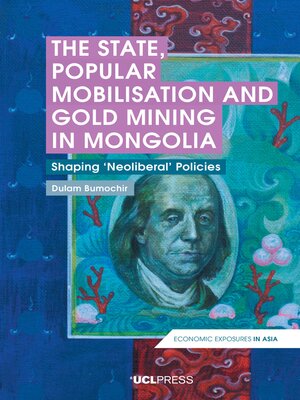The State, Popular Mobilisation and Gold Mining in Mongolia
ebook ∣ Shaping 'Neoliberal' Policies · Economic Exposures In Asia
By Dulam Bumochir

Sign up to save your library
With an OverDrive account, you can save your favorite libraries for at-a-glance information about availability. Find out more about OverDrive accounts.
Find this title in Libby, the library reading app by OverDrive.



Search for a digital library with this title
Title found at these libraries:
| Library Name | Distance |
|---|---|
| Loading... |
Mongolia's mining sector, along with its environmental and social costs, have been the subject of prolonged and heated debate. This debate has often cast the country as either a victim of the 'resource curse' or guilty of 'resource nationalism'.
In The State, Popular Mobilisation and Gold Mining in Mongolia, Dulam Bumochir aims to avoid the pitfalls of this debate by adopting an alternative theoretical approach. He focuses on the indigenous representations of nature, environment, economy, state and sovereignty that have triggered nationalist and statist responses to the mining boom. In doing so, he explores the ways in which these responses have shaped the apparently 'neo-liberal' policies of twenty-first century Mongolia, and the economy that has emerged from them, in the face of competing mining companies, protest movements, international donor organizations, economic downturn, and local and central government policies.
Applying rich ethnography to a nuanced and complex picture, Bumochir's analysis is essential reading for students and researchers studying the environment and mining, especially in Central and North East Asia and post-Soviet regions, and also for readers interested in the relationship between neoliberalism, nationalism, environmentalism and state.
Praise for The State, Popular Mobilisation and Gold Mining in Mongolia
'Engaging and comprehensive reading. This book appeals a great deal to both academic and non-academic readers.'
*Études mongoles et sibériennes, centrasiatiques et tibétaines
Nomadic Peoples
'this work is an important contribution to different topics in the broader social movement literature, such as the recent debate on discursive opportunity structures and anti-mining movements'
Mobilization: An International Quarterly
'A delightful and clear read'
Journal of the Royal Anthropological Society (JRAI)







